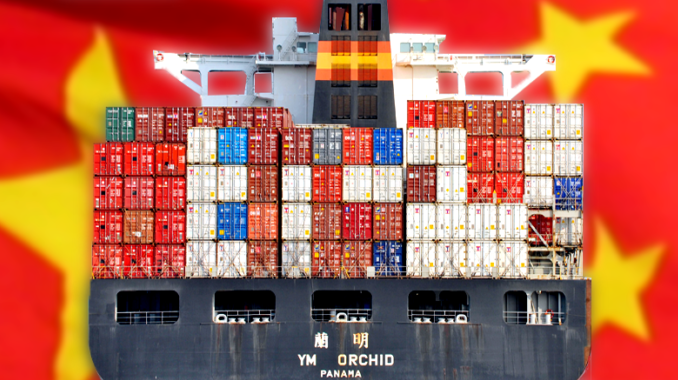
The United States won’t be a victim of decisions limiting its use of trade restrictions, it proclaimed in the annual Trade Policy Agenda report on Friday.
The report begins by lamenting that the administration “inherited” a trade system with “many problems” arising from the numerous “outdated and imbalanced” trade agreements to which the United States is a party. Singled out in the report are NAFTA, the US-Korea Free Trade Agreement (KORUS), and the WTO.
As Reuters notes, the US Trade Representative insists that the United States “remains committed” to its obligations under the World Trade Organization and would continue to use the Geneva-based intergovernmental body to settle trade disputes.
Nevertheless, the USTR emphasizes the administration’s displeasure with the organization, which was initiated by President Ronald Reagan in 1986 and entered into effect in 1995. The office’s annual report boasts that President Trump’s administration has “stood up to efforts by some at the WTO to infringe on national sovereignty,” citing an “activist approach” by the WTO’s Appellate Body, the world’s top trade court, to “repeatedly” seek to create new obligations not covered in original agreements.
The report also criticizes the WTO for being ill-equipped to handle “the fundamental challenge posed by a non-market economy like China,” who joined the WTO in 2001. The report claims that China has no reason to respect WTO settlement agreements, even as the country “continues to embrace a state-led, mercantilist approach to the economy and trade that is fundamentally incompatible with the open, market-based approach expressly envisioned and followed by other WTO Members.” It concludes that the United States must have the “policy space” to address trade disputes on its own, including via the use of tariffs, and declares that
The United States remains an independent nation, and our trade policy will be made here – not in Geneva. We will not allow the WTO Appellate Body and dispute settlement system to force the United States into a straitjacket of obligations to which we never agreed.
[Author’s note: As Robert E. Litan at Brookings and Daniel Griswold at Cato explain, the WTO has no authority to change the trade laws a country might enact; it can only allow other countries proportionate retaliation.]
This statement by the USTR echoes claims that the President has made in the past that “we lose the lawsuits, almost all of the lawsuits … within the WTO,” because “we have fewer judges than other countries.”
Fact checkers, however, dispute this version of events:
Since the WTO began regulating international trade in 1995, the country bringing a complaint to the WTO has won about 90 percent of the time. That’s among the adjudicated cases — most cases are settled between the countries before that.
Simon Lester, a trade policy analyst for the libertarian Cato Institute, explained that the reason for the high success rate by complaining countries is that “governments don’t bring WTO complaints unless they are pretty sure they will win.”
That has proven true for cases brought by and against the U.S.
In March, Dan Ikenson, director of Cato’s Herbert A. Stiefel Center for Trade Policy Studies, reviewed WTO trade disputes involving the U.S. from 1995 to March of this year. He found that the U.S. prevailed in 91 percent of cases that it brought against other countries.
FactCheck.Org
President Trump has long railed against the WTO, frequently bashing it alongside NAFTA at his rallies. As he unveiled plans for tariffs on aluminum and steel imports at the White House in March 2018, he asserted that “The WTO has been a disaster for this country. It has been great for China and terrible for the United States.” And in August, he told Bloomberg that the WTO was “the single worst trade deal ever made” and that the United States would withdraw from the organization “if they don’t shape up.”
In fact, the WTO just ruled in favor of the United States on Thursday in its action against China, determining that the latter’s artificial deflation of rice and wheat prices violated its agreed-upon obligations.
To secure the reforms that the report outlines in further detail, President Trump’s administration has followed a policy of blocking the reappointment of judges to the Appellate Body, a process requiring consensus among member nations. The settlement of dispute cases requires a minimum of 3 judges. Of the usual 7 judges, this minimum number is all that remains, and 2 of these terms expire in December. This would render the chief purpose of the WTO inoperable.
Shortly before the White House’s panning of current free trade agreements was released, the President announced he has asked China to abolish its retaliatory tariffs on US agricultural products, since negotiations were “moving along nicely.”
We at The News Blender will keep readers abreast of how that works out.
